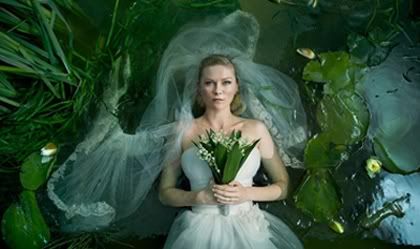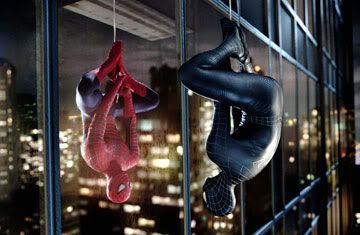
Most of the criticism I've read of "Bachelorette" is that none of the characters are likable. What people need to get over is the preconception that unlikable characters don't have anything to offer. Consider Lena Dunham's "Girls," the HBO series portraying a group of young women who aren't always making the best life decisions. Even "Bridesmaids," last year's female comedy sensation which launched Kristen Wiig to A-list status and reopened the conversation on women in comedy, has characters who aren't always likable. And yes, drawing parallels between this new female-centric comedy out of Sundance and "Bridesmaids" is unavoidable, much in the way the Judd Apatow-inspired male perspective comedies dominated the multiplex in the early to mid-2000s. This is simply the new wave of that, this time subverting our expectations on female behavior and relationships. "Bachelorette" is not so much "Bridesmaids 2" as it is the meaner, darker and more twisted stepsister of "Bridesmaids," very much its own independent and devilishly delicious creation from first-time writer/director Leslye Headland.
Coming off the coattails of her self-destructive dramatic performance in Lars von Trier's "Melancholia," Kirsten Dunst goes for a much different -- yet still self-destructive -- approach here playing Regan, the blonde ice queen in charge of her best friend's wedding. Regan is also the lead in her high school group of girlfriends, the Californian free spirit Gena (Lizzy Caplan) and the loose cannon retail girl, Katie (Isla Fisher), who serve as bridesmaids in the wedding. The friend getting married is Becky (Rebel Wilson), the fourth member of their high school group who was probably only unintentionally included as someone to mock. She's the fat girl among skinny, catty bitches who still bring up her high school nickname, Pigface. There are rampant 90s pop culture references perhaps to remind us what age these ladies are having graduated in '99 but still act like children.
Gena and Katie's plans to party like animals come to a screeching halt when Becky tells them they'll just be enjoying champagne and ice cream in the hotel room. That doesn't stop them from talking Regan into some partying of their own full of booze-drinking and cocaine-snorting. A surprising amount of cocaine-snorting. They bust out Becky's wedding dress only so Regan and Katie can shove themselves in it and tag Becky in a Facebook photo. The dress rips sending the completely trashed trio on a wild goose chase through middle-of-the-night Manhattan to try to fix their self-satisfying, bad karma-induced screw-up. By the end of the movie, the wedding dress receives more damage than any one should in a single lifetime.
This creative vehicle of needing to find an emergency dress replacement or repair allows freedom for Headland to create scenes of well-orchestrated that are chainsaw-sharp with acidic writing and humor. The girls get easily sidetracked and end up going to the groomsmen's bachelor party to a strip club, which results in possibly the most unflattering and unsexy strip club scene in recent memory. Among the men are Trevor (James Marsden) looking to tame Regan's ferocious energy; Clyde (Adam Scott), Gena's ex-boyfriend from high school who she has effectively avoided like the plague until now; and Joe (Kyle Bornheimer) who's the only one not OK with referring to Katie simply as getting with "that." With these men do come romantic possibilities, but it's the women who are crashing their party.
Isla Fisher is worth noticing as the perpetually wasted Katie who's a walking wreck in tight skirt and heels, a woman unrelenting in playing up her bimbo slut persona. Lizzy Caplan's Gena is introduced to us in a monologue on a plane about how she uses her oral sex skills to manipulate men. It's a scorcher, and Caplan owns the role giving us someone who hides her insecurities behind a veneer of hardened anger. And then there's Dunst who's portrayal of Regan is raw, real and nothing short of nightmarish. Her arrogance hits a high note when she utters this vapid complaint about her overpriviliged life: "I did everything right. I went to college. I exercise. I eat like a normal person. I've got a boyfriend in med school, and nothing is happening to me."
These girls are never likable, but their personalities soften and are given a humanity, and they're certainly not monsters. They do want to fix their friend's wedding dress. They're even, dare I say it, relatable, forcing us to hold a mirror up to our own imperfections. This is especially true in the film's closing motto from Regan, as she pronounces "fuck everyone" to muster up Becky's courage in forgetting what people think and to just walk down the aisle. Who hasn't felt that before?









